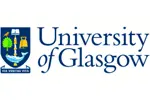About Physics with Astrophysics, MSci (Hons) - at University of Glasgow
In this degree programme the study of physics is pursued with particular focus on astrophysical phenomena: from stars and planets to galaxies and cosmology. Astrophysics provides a natural laboratory in which to explore the laws of physics, and in certain astrophysical objects: such as pulsars, quasars and black holes; to test those laws under extreme conditions.
What will I study?In first year you will gain a basic understanding of the main topics in theoretical physics and will be introduced to the methods of experimental physics, thereby providing a solid foundation for further study in physics. The second year course will extend your broad physics education, providing training in more specialised experimental techniques and expanding your awareness of the latest developments in modern physics research.
You will also be introduced to the foundations of astronomy, covering topics including the physics of our solar system, dynamical astronomy and the potential for life in the universe.
If you progress to Honours you will continue to study core topics in greater depth but will also study specialist subjects of your choice in depth and will undertake project work, often within a world-leading research group. The main astrophysics components of the Honours programme include:
- Stellar structure and evolution
- High energy astrophysics
- Cosmology and general relativity
- Instruments for optical and radio telescopes
- Plasma theory and diagnostics.
How will I learn?Teaching is delivered through a combination of lectures, small group tutorials, seminars and lab work.
Special features- All programmes containing physics are fully accredited by the Institute of Physics.
- The University is part of the Scottish Universities’ Physics Alliance (SUPA), a group of six university physics and astronomy departments which aims to place Scotland at the international forefront of research in physics and astronomy.
- Astronomy lectures are complemented by our observatory, planetarium and telescope facilities. The University also maintains close links with the Glasgow Science Centre, home of one of the UK’s best planetariums.
NoteThe University also offers a combined degree programme in Physics / Theoretical Physics and Astronomy, which features a higher proportion of Astronomy courses.


